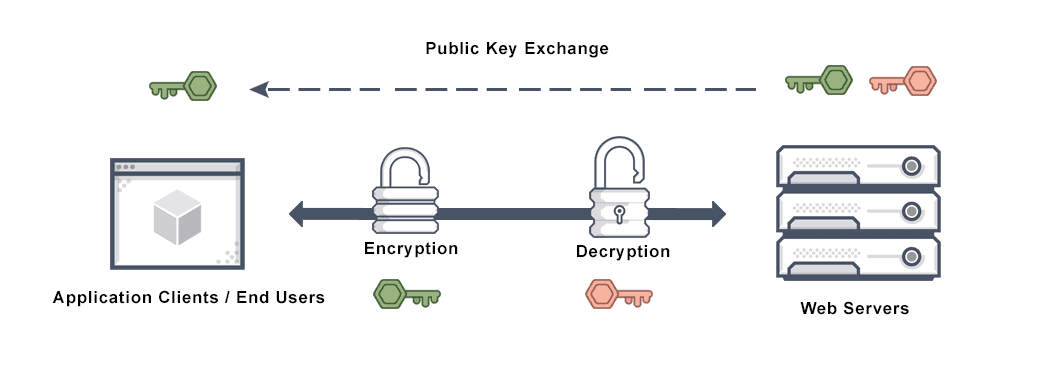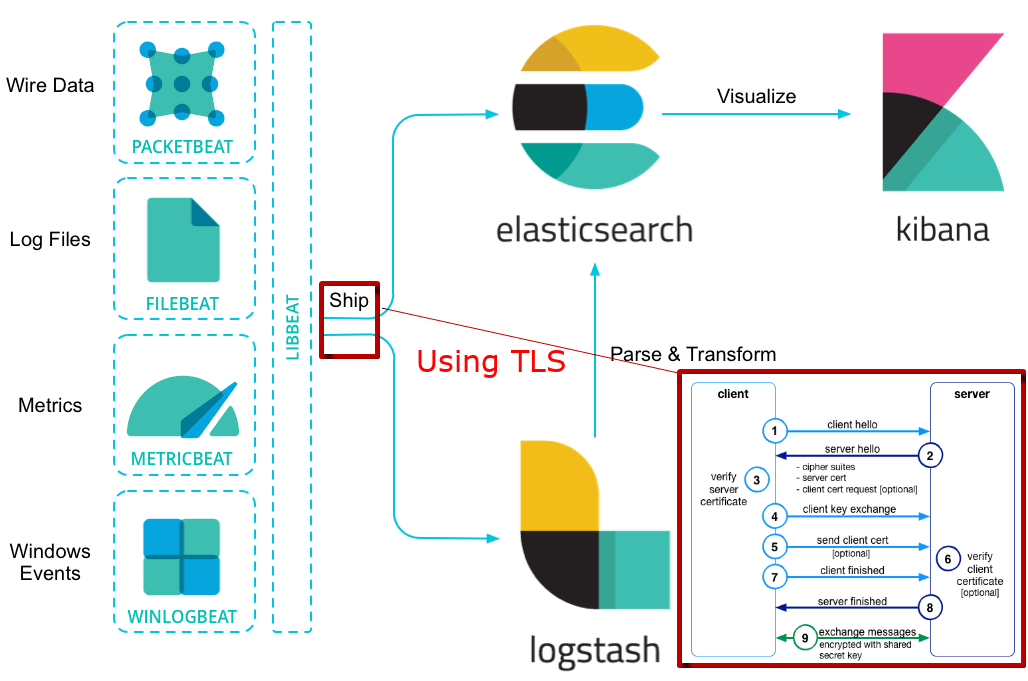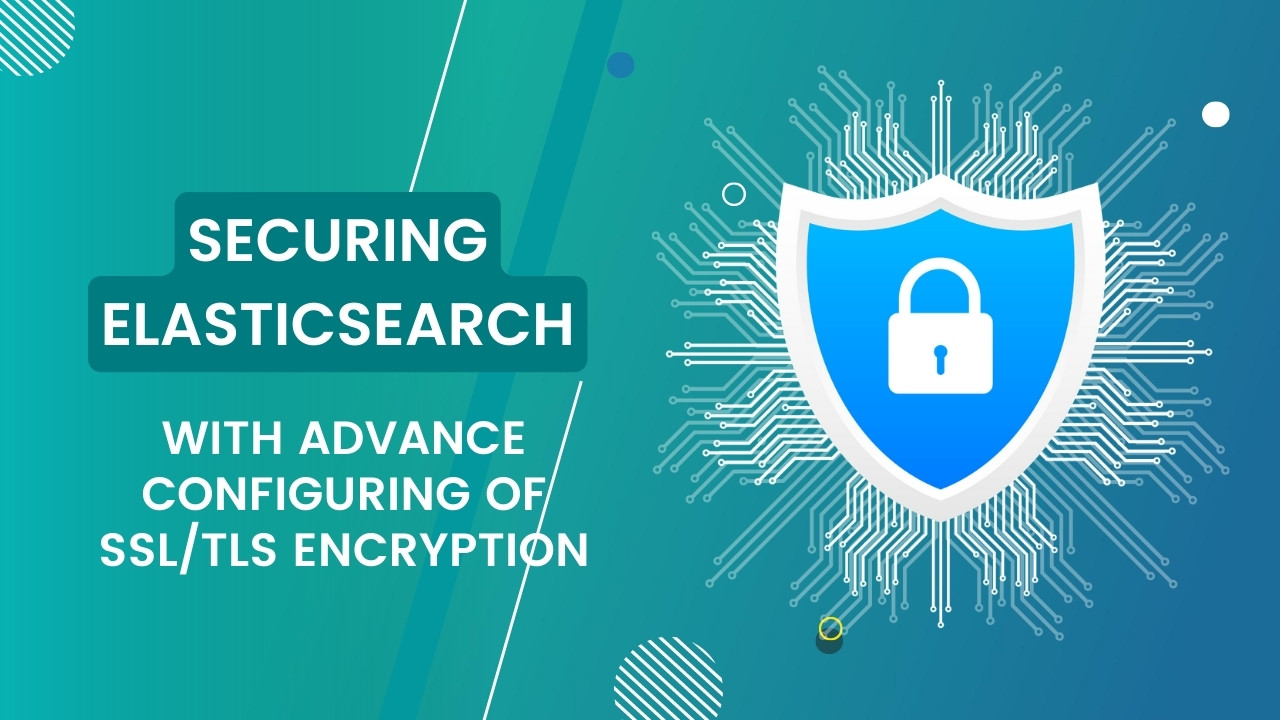In an era of increasing digital threats, securing data in transit is crucial to protect sensitive information from unauthorized access. SSL (Secure Sockets Layer) encryption provides a secure channel for data communication by encrypting data between the client and the server. When it comes to Elasticsearch, leveraging Elasticsearch managed services with end-to-end SSL encryption ensures data confidentiality and integrity throughout the entire data flow. This article explores the significance of SSL encryption, its implementation in Elasticsearch managed services, and the benefits it brings to organizations.
Understanding the Importance of SSL Encryption
SSL encryption plays a vital role in securing data transmission over the internet. It prevents unauthorized interception, eavesdropping, and tampering by encrypting data with cryptographic algorithms. By using SSL encryption, organizations can protect sensitive data, such as personally identifiable information (PII), financial details, and confidential business data, from being compromised during transit.
Introducing Elasticsearch Managed Services
Elasticsearch managed services offer a comprehensive solution for organizations to leverage Elasticsearch’s powerful search and analytics capabilities without the hassle of managing infrastructure. Managed services provide a fully managed and scalable Elasticsearch environment, allowing businesses to focus on extracting insights from their data. With Elasticsearch managed services, organizations can easily enable SSL encryption to secure data communication.
SSL Encryption in Elasticsearch Managed Services
SSL encryption in Elasticsearch managed services ensures secure communication between clients and the Elasticsearch cluster. It encrypts data at the transport layer, protecting it from potential threats while in transit. By enabling SSL encryption, organizations can establish a trusted and encrypted connection, preventing unauthorized access and ensuring data confidentiality.

Benefits of End-to-End SSL Encryption
Implementing end-to-end SSL encryption with Elasticsearch managed services offers several benefits:
Data Confidentiality:
SSL encryption ensures that data exchanged between clients and Elasticsearch remains confidential, preventing unauthorized access or interception.
Data Integrity:
SSL encryption protects against data tampering during transit, ensuring the integrity of the exchanged information.
Secure Authentication:
SSL encryption verifies the identity of the server, preventing man-in-the-middle attacks and ensuring that clients are communicating with the intended Elasticsearch cluster.
Compliance and Data Regulations:
Implementing SSL encryption helps organizations comply with data protection regulations and industry-specific security standards.
Customer Trust:
End-to-end SSL encryption demonstrates a commitment to data security, enhancing customer trust and reputation.
Implementing SSL Encryption with Elasticsearch Managed Services
To implement SSL encryption with Elasticsearch managed services, organizations can follow these steps:
Generate SSL Certificates:
Generate SSL certificates and private keys using a trusted certificate authority (CA) or a self-signed certificate. Ensure the certificates are securely stored and managed.
Configure Elasticsearch for SSL:
Update Elasticsearch configuration files to enable SSL/TLS communication. Specify the paths to the SSL certificates and configure SSL-related settings.
Configure Clients for SSL:
Update client applications to communicate with Elasticsearch using the appropriate SSL certificates and configure SSL/TLS settings.
Test and Verify SSL Connectivity:
Perform thorough testing to ensure that SSL encryption is properly configured and that clients can establish secure connections with the Elasticsearch cluster.
Monitor and Manage SSL Certificates:
Regularly monitor SSL certificates for expiration and implement a certificate management process to ensure their continuous validity.
Best Practices for SSL Encryption Configuration
Consider the following best practices when configuring SSL encryption with Elasticsearch managed services:
Use Trusted SSL Certificates:
Obtain SSL certificates from trusted certificate authorities to establish secure connections and avoid potential security risks associated with self-signed certificates.
Enable Strong Cipher Suites:
Configure Elasticsearch to use strong and secure cipher suites, ensuring robust encryption algorithms and secure communication.
Implement Certificate Pinning:
Implement certificate pinning to ensure that client applications only trust specific SSL certificates associated with the Elasticsearch cluster, preventing man-in-the-middle attacks.
Rotate SSL Certificates Regularly:
Rotate SSL certificates periodically to maintain security and prevent unauthorized access. Develop a certificate renewal strategy and adhere to it to avoid expired certificates.
Monitor SSL Traffic:
Regularly monitor SSL traffic for potential security incidents, anomalies, or unauthorized access attempts. Implement logging and monitoring mechanisms to detect and respond to security events.

Ensuring SSL Security and Certificate Management
To ensure the security and effective management of SSL certificates in Elasticsearch managed services, organizations should:
Secure Certificate Storage:
Store SSL certificates securely, protecting them from unauthorized access or exposure. Implement secure key management practices and restrict access to certificate files.
Establish Certificate Expiration Alerts:
Set up alerts and reminders to notify administrators before SSL certificates expire. This ensures timely certificate renewal and prevents service disruptions.
Maintain Certificate Documentation:
Maintain proper documentation of SSL certificates, including their issuance and expiration dates, certificate authorities, and associated domains or hosts.
Implement Certificate Revocation:
Establish a process for certificate revocation in case of compromised certificates or other security incidents. Revoke and replace certificates promptly when necessary.
Regularly Review SSL Security:
Conduct periodic security assessments and audits to review SSL encryption configurations, certificate management practices, and adherence to security standards.
Need help on maintaining Azure Security Center Secure Score of Clients?
Our experts can help you on all kinds of works on Azure Security Center.
Conclusion
End-to-end SSL encryption with Elasticsearch managed services is essential for securing data transmission and maintaining data confidentiality and integrity. By enabling SSL encryption, organizations can establish trusted and encrypted connections, preventing unauthorized access and ensuring the security of sensitive information.
Implementing SSL encryption, adhering to best practices, and managing SSL certificates effectively strengthen data security and build customer trust. Embrace SSL encryption with Elasticsearch managed services to protect your data and enhance your organization’s overall security posture.








